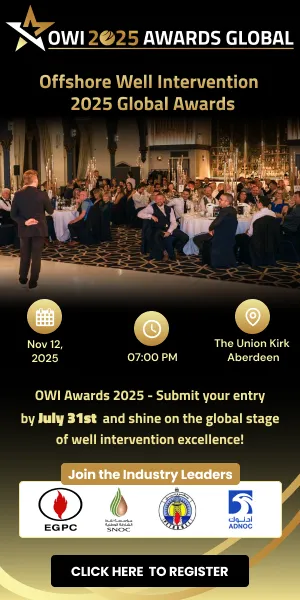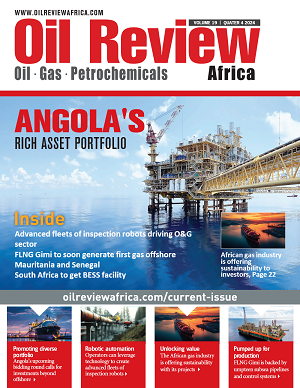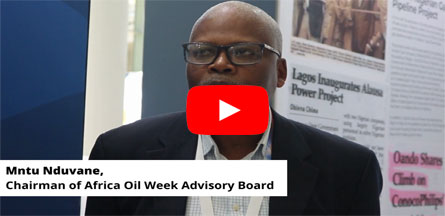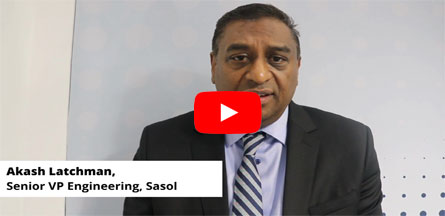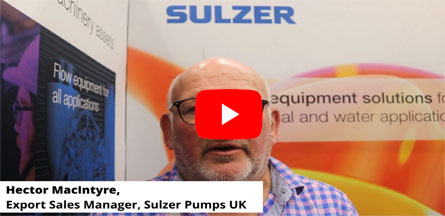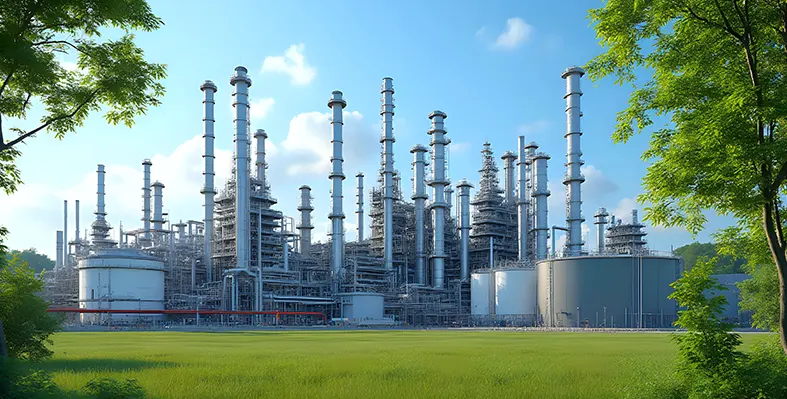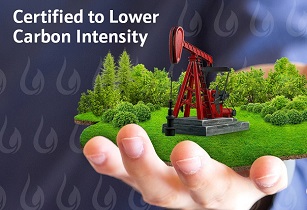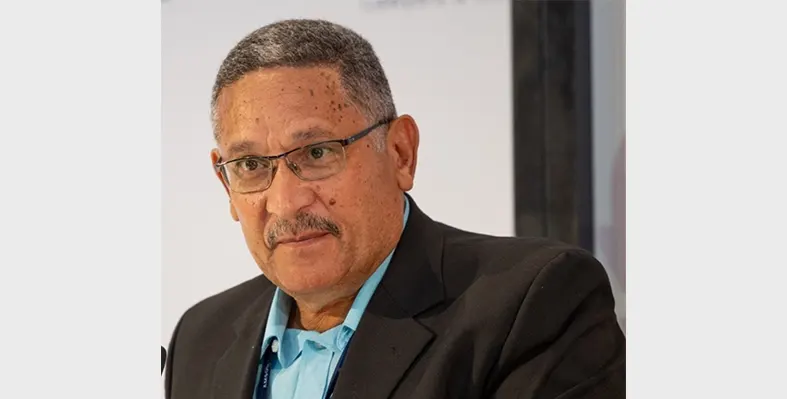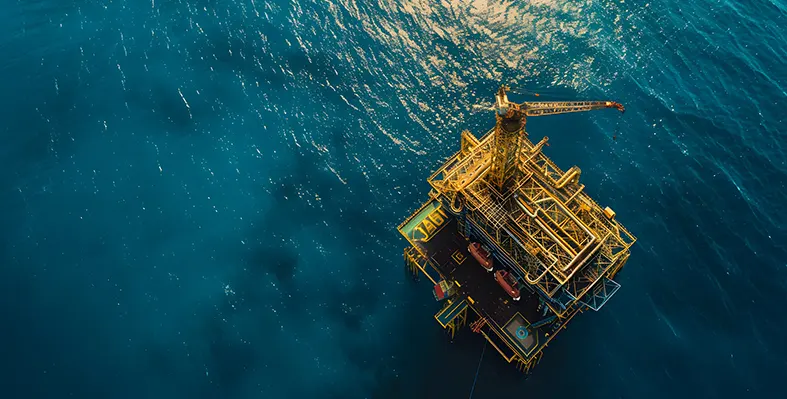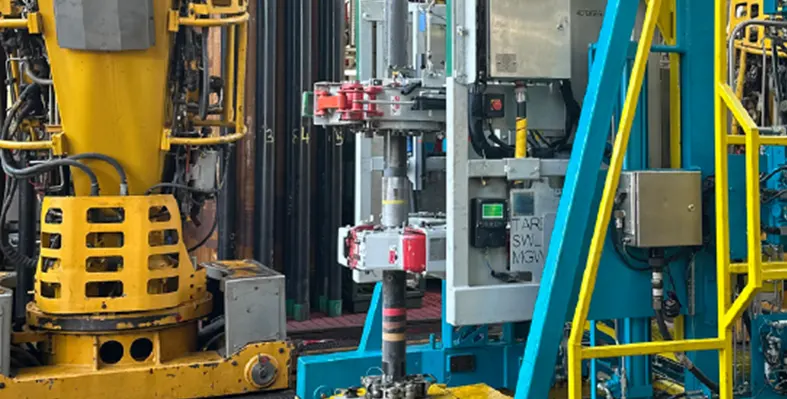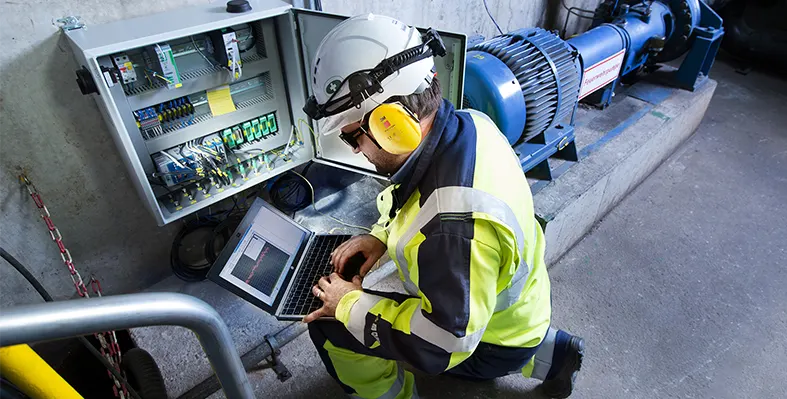In The Spotlight
The Lower Congo Basin offshore Angola that falls under the purview of Block 1/14, revealed commercial gas from the Gajajeira-01 exploration well for partners, including the National Agency of Petroleum, Gas and Biofuels, Azule Energy (35%), Equinor (30%), Sonangol E&P (25%) and Acrep SA (10%)
This is great news for ANGP as this lends the national oil and gas body a strong ground to advance domestic gas consumption while also boosting the petrochemical industry. "The new discoveries are a motivating factor in our commitment to attracting private investment in the sector for the development and monetisation of natural gas," said Paulino Jerónimo, chairman of the ANPG Board of Directors.
The well reached the discovery of gas- and condensate-bearing sandstones in one of the Lower Oligocene targets following drilling at a water depth of 95 meters and approximately 60 kilometers offshore. Advanced evaluation formations and control tools were used to assess reservoir quality and fluid characterestics during the drilling of the first section. As drilling continues at the Gajajeira-01 well, the last interval of the Lower Oligocene LO300 remains the next target.
The initial results and testings collected from fluid samples have pointed towards multiple reservoirs with good mobility. Going ahead with the project can lead to the finding of gas volumes worth more than 1 trillion cu/ft, with up to 100 mn barrels of associated condensate.
To top that, the findings indicate an underlying hydrocarbon system at large, suggesting grand opportunities for exploration for the Block 1/14 partners.
"This is a landmark moment for gas exploration in Angola. The Gajajeira-01 well is the first dedicated gas exploration well in the country, and its success reinforces our confidence in the potential of the Lower Congo Basin. We are proud to contribute to Angola's long-term energy development with a focus on sustainability and energy security," said Azule Energy's CEO, Adriano Mongini.
Gabon is pushing for deepwater oil and gas exploration to bring new projects online, and restore production decline in Central and West Africa
The newly appointed Minister of Oil and Gas of Gabon, Sosthène Nguema Nguema, has announced the administration's interests in tapping into the country's deepwater acreage, 72% of which remains unexplored. To get this going, existing petroleum laws are being revised to introduce fresh incentives for deepwater exploration and interests.
The Gabonese Government is leveraging the Gabon Oil Company for a stronger ownership role and commercialising legacy assets with takeovers such as that of Carlyle owned Assala. Now, with the promotion of deepwater exploration in a global scale, Gabon will not only see a boost in production count but also the development of a new hub for refined product distribution in Central Africa.
Gabon is anticipated to produce close to 1 million barrels of oil per day. As the country boasts of more than 2 bn barrels of proven oil reserves, its current objective is to maintain a production count above 220,000 barrels per day for the short to midterm. This will become a lot easier with the advancement of deepwater exploration. Regulatory reform represents a cornerstone of the country’s exploration strategy, with potential improvements to petroleum legislation set to strengthen the competitiveness of investing in Gabon’s deepwater blocks. In 2019, the country introduced its Hydrocarbons Code. The new government seeks to go even further, recognising the presence of stiff competition from other offshore destinations globally. The code featured amendments to production sharing contracts (PSC), state profitability and tax, therefore providing a quicker path to profitability for foreign operators. Looking ahead, further revisions of this code stand to support new investment, encouraging deepwater exploration and new forays by global operators.
Major players are already active in Gabon, with ongoing developments underscoring the potential available across Gabon’s offshore blocks. Exploration and production company BW Energy, for example, signed PSCs for exploration blocks Niosi Marin and Guduma Marin in 2024, covering an eight-year exploration period with a two-year extension option. BW Energy and its partner on the block VAALCO Energy have committed to drilling one well as well as carrying out a 3D seismic acquisition campaign. BW Energy also has stakes in the Dussafu license, which features 14 producing wells tied back to a FPSO through a 20km pipeline. Partners on the license include the state-owned Gabon Oil Company (GOC) and Panoro Energy. Independent oil and gas company Perenco spud the Hylia South West discovery in Gabon in early 2024, revealing substantial oil-bearing columns in the Ntchengue Ocean reservoir. Chinese oil firm CNOOC launched wildcat drilling on Blocks BC-9 and BCD-10 in early-2023 on the back of 1.4 billion barrels of recoverable resource potential, with future discoveries set to double Gabonese oil production while de-risking deepwater exploration. Despite these developments, much of Gabon’s deepwater potential remains underexplored, highlighting a strategic opportunity for both active and potential players.
Increased hydrocarbon production in tandem with future deepwater discoveries are expected to support Gabon’s broader goals of creating a regional petroleum hub in Gabon. Strategically positioned on the West coast of Central Africa, Gabon is making strides towards enhancing oil and gas refining, storage and distribution capacity. Major infrastructure projects signal the country’s intention to become a petroleum hub. Notably, Perenco is advancing the development of the Cap Lopez LNG terminal in Gabon, targeting first production by 2026. Situated at the existing Cap Lopez oil terminal, the $2 billion project will introduce a FLNG vessel designed to monetize offshore gas reserves and reduce flaring. The FLNG vessel will feature a production capacity of 700,000 tons of LNG and 25,000 tons of LPG, supported by a storage capacity of 137,000 cubic meters. The project complements the Batanga LPG facility, which came online in December 2023 with a target production capacity of 15,000 tons of LPG annually. Beyond LNG and LPG, Gabon is working towards enhancing refining capacity with plans to expand its sole operating refinery – SOGARA – from 1.2 million tons to 1.5 million tons of crude. This expansion would enable the country to achieve self-sufficiency in refined petroleum products by 2030.
PetroNor E&P ASA has generated an average of 4,240 bopd net working interest production from its operations in the PNGF Sud field complex in Congo in the second quarter
This stands against the 4,303 bopd in the previous quarter and 4,684 bopd in the second quarter of 2024.
The current yield at 90% is an improvement on the 2024 average of 86%. Two workover crews are pursuing reinstatement of idle production from wells in the workover queue.
In the first half of the year, the company restocked the significant overlift position and is currently building entitlement oil inventory in anticipation of a lifting and sale in the fourth quarter.
Rig Axima has arrived on location, and drilling operations have commenced for the announced fivewell infill programme in Tchibouela East. This is expected to add significant new production capacity during the second half of the year.

PEL 79 sits adjacent to an emerging microregional dynamic focused on oil-weighted prospectivity. (Image source: Sintana Energy))
The Ministry of Industries, Mines and Energy for the Republic of Namibia has approved a second renewal exploration period with a 12-month extension for the petroleum exploration license 79 (PEL79) that includes blocks 2815 and 2915 located in Namibia's Orange Basin
The PEL 79 is operated by the National Petroleum Corporation of Namibia Ltd (Namcor) with a 67% interest, while Giraffe Energy Investments -- an entity in which Sintana maintains a 49% ownership interest -- owns a 33% share on the license.
Sitting inboard of licenses operated by BW Energy, Rhino Reosurces, and Shell, PEL 79 promises incredible prospects with an existing prospect inventory underpinned by more than 4760 km of 2D seismic, 1,137 sq km of 3D seismic and 1 well with gas shows intersecting the Kudu source rock.
To top that, PEL 79 sits adjacent to an emerging microregional dynamic focused on oil-weighted prospectivity.
Right outboard to the west of PEL79, the license operator, Rhino Resources, has drilled two wells, including the Capricornus-1X discovery well, that reflected a flow test exceeding 11,000 barrels per day of light oil with limited associated gas from a 38-metre net oil-bearing reservoir. The third quarter of the year will see the commencement of further drilling activity, targeting the Volans prospect, with up to two optional wells that could include appraisals.
BW Energy has acquired 4,600 sq km of new 3D seismic over PEL 3, located directly west of PEL 79, and has moved to initiate an exploration and appraisal campaign including drilling the Kharas well located northwest of Kudu during H2 2025.
“We appreciate the leadership by our joint venture partner NAMCOR to secure the extension for PEL 79. Extending our exposure during a period of significant offset activity positions us to fully realise the significant geologic, commercial, and strategic value of PEL 79,” said Robert Bose, chairman of Giraffe and chief executive officer of Sintana. “The potential for high impact progress on PEL 79 adds to the prospect for significant developments across our Namibian offshore portfolio. We expect material progress on all our licenses over the coming quarters,” he added.
88 Energy Limited has secured license extension for 12 months from the Namibian Government, extending the PEL 93 First Renewal Exploration Period to 2 October 2026
During the extended period the company will aim datasets Integration to select drilling location, and complete an Environmental Impact Assessment (EIA) for drilling.
The PEL 93 is located in the Owambo Basin, onshore Namibia.
A farmout agreement with Monitor Exploration Limited for a joint venture gives 88 Energy Limited a 20% working interest in PEL 93. By way of an amendment on the agreement, the partners have introduced a new stage 1A work programme to target pre-drill de-risking.
The 2024 2D seismic data collected from an anticlinal structure -- Lead 9 -- spreading across 100 sq km has led to new insights to be unlocked from a gravity survey area. The partners have hence included on the programme a high-resolution gravity survey to focus on the southern area of PEL 93. The survey will be supplemented by radiometric data.
This anticipation has been strengthened by similar findings from the Kavango West 1X exploration well where ReconAfrica is now all set to start drilling this month.
Lead 9 is similar to Recon’s imminent Kavango West 1X well in that both show a very large and robust structural closure including the shallow clastic reservoirs, the deeper Otavi carbonate reservoir seen in Naingopo-1 and the deeper source rocks.
Monitor's statement read, “Our early results are pointing to something potentially significant in the southern area of PEL 93 in the Owambo Basin. With multiple datasets aligning and the prospect of even larger structures emerging, the Joint Venture is building momentum towards a drilling event and what could be a basin opening discovery with broad implications for all of Namibia given the significance in unlocking a major new hydrocarbon play.”
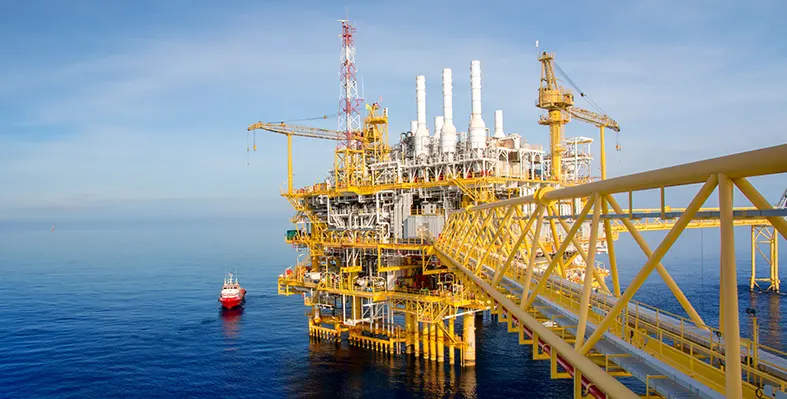
The project will involve the installation of compact twin-well configurations. (Image source: Adobe Stock)
The engineering, procurement, installation and commissioning work for Phase XI Deepwater Project of the West Delta Deep Marine (WDDM) concession has been vested on Petroleum Marine Services (PMS) by independent engineering consultancy Longitude Engineering
Longitude’s engineering scope comprises the detailed design of deep-water rigid jumpers, development of fabrication drawings, onshore and offshore handling procedures, offshore installation engineering, process and stress modelling, and key HSE studies and engineering workshops.
The Phase XI development of the Burullus gas field involves the tie-in of three subsea twin deep-water natural gas wells. The scope of work includes engineering, procurement, fabrication, installation, and commissioning support five subsea M-shape rigid jumpers, equipped with deep-water specialised connectors, multiphase gas meters, and sand detection systems.
Compact twin-well configurations will be installed, each with a subsea jumper span limited to approximately 25 meters in length. This will be placed in a brownfield environment adjacent to an existing live natural gas deep-water system, part of one of the largest deep-water natural gas networks globally.
A tie-in structure, namely “Tie-In Spool Base, TSB” designed to accommodate multiple jumpers within a single subsea module will offer enhanced production flexibility and enabling well allocation interchangeability.
Subsea control system components to support well operation and chemical injection.
Located approximately 90 kilometres offshore Egypt, in the north-western Nile Delta region of the Mediterranean Sea, the WDDM concession is operated by Shell through its joint venture, Burullus Gas Company. The area includes 17 gas fields at water depths ranging from 300 to 1,200 meters.
“We are delighted to secure this contract following the success of our previous work on Phase X. The West Delta Deep Marine development is of major significance to Egypt’s oil and gas sector, and we remain committed to delivering the highest quality of service to PMS and, ultimately, to the operator,” said Daniel McGowan, Offshore Project Director at Longitude Engineering.
Longitude Engineering provides specialised engineering, design, and analysis consultancy services across various markets, including renewables, maritime, oil and gas, and infrastructure. The company’s expertise spans concept selection, Pre-FEED and FEED studies, marine operations engineering, and vessel design.
Tanzania-focused oil and gas exploration company, Aminex, has notified that the construction of the pipeline from the Ntorya gas field to the Madimba gas processing plant is set to commence this month, with an aim to complete and commission it by the end of July 2026.
APT is currently awaiting approval from the Petroleum Upstream Regulatory Authority (PURA) on its tender strategy for contracting a rig to drill the Chikumbi-1 well and conduct a workover on the Ntorya-1 well along with all related services.
Charles Santos, executive chairman of Aminex, said, "We are delighted that work on the pipeline will commence this month, marking the start of the construction phase of the Ntorya Gas Development. With a plan to complete the Pipeline by July 2026 and expectation of starting a rig tender process very soon, the project is well on its way to producing first gas next year.
"We are grateful to the TPDC, PURA and other agencies, which have backed the Government of Tanzania’s strong commitment to our project with their hard work. And we thank APT as the operator for managing the dynamic work streams to reach this milestone.
"As the discoverer of the Ntorya Gas Field and founding partner in the development, we have long believed the project will be a gamechanger for Tanzania’s energy landscape. Gas from the first phase of development will be staying in Tanzania to help power homes, boost industrial development and the regional economy and replace dirtier fuels such as coal and charcoal. This has long been our vision and now we are very excited to be so much closer to realising that vision.”
Mozambique’s state-owned oil company, Petromoc, has entered a strategic deal with a Nigerian energy firm called Aiteo to develop an oil refinery with a capacity to reach 240,000 barrels-per-day
The agreement is a two-way blessing as it not only attracts foreign investments for Mozambique in strategic sectors, but also pushes Aiteo to a further influential position as a local company beyond its Nigerian base.
Signed during a formal ceremony chaired by the Mozambican President Daniel Chapo, the agreement will advance energy independence for the country. It will boost fuel supply security, facilitating the construction of one of the largest refineries in southern Africa, and the Southern African Development Community (SADC).
The engineering procurement and construction activities for the refinery will be covered by an American firm called Deerfield Energy Services LLC. The refinery will be developed in a phased manner with an initial aim to install an 80,000 bpd processing unit within a two-year time frame, and gradually scaled up to the maximum capacity.
While the project promises several benefits, the financial, environmental compliance and execution timelines-based risks involved needs consideration. When ready for operation, the plant will be able to produce petrol, diesel, jet fuel and naptha for domestic as well as regional use.
Calling the project a 'milestone' for its employment generation possibilities, Ransome Owan, Aiteo's group managing director for infrastructure, said, “It will reduce import reliance, create jobs, and lay the foundation for Mozambique to become a leading hub in the region’s downstream energy sector.”
Mozambique is committed to an extensive industrial strategy to advance energy access, economic diversification, and infrastructure development. The refinery falls in line with this strategy as it will ensure greater access to cleaner fuels and advance clean cooking initiatives with the easy availability of liquefied petroleum gas (LPG) distribution.
As Africa is zooming in on brownfield sites for maximum oil recovery, artificial intelligence and machine learning technologies are fuelling the industry's optimisation goals
Redifining operational efficiency by extending field life and maximising output, AI is set to move the oil and gas industry at a US$6.4bn market value by 2030.
As major operators increasingly adopt AI, global oilfield technology companies like Baker Hughes, Halliburton or SLB have opened bases in Africa. SLB's technology is backing several billion-dollar oil projects in Angola, and has introduced the Africa Performance Centre in Luanda this year. It has a strong presence in other regions of Africa as well.
Repsol has several developments underway in Libya, Algeria and Morocco and strives to bolster production across these markets.
Enhanced oil recovery is currently witnessing a disruption as AI has unlocked access to large datasets which is unimaginable with traditional systems. This makes a huge difference for operators in taking the right decisions. With deep geological and production data in hand, reservoir management and pattern identification become much simpler.
AI is now way past the experimental stage, and is being adopted on a policy level as well. Many African countries are streamlining policy to support EOR at legacy assets. Angola, for example, implemented its Incremental Production Initiative in 2024 which offers tax incentives to encourage reinvestments in mature oilfields. Energy major ExxonMobil made the first discovery – the Likembe-01 well - as part of the initiative in 2024, demonstrating the role policy plays in unlocking incremental resources. The African Union Commission also declared AI as a strategic priority for the continent in May 2025, citing the role machine-learning plays in transforming the continent’s development trajectory.
These topics will drive conversations at the African Energy Week (AEW): Invest in African Energies 2025 that will be taking place from 29 September 29 to 3 October in Cape Town.










